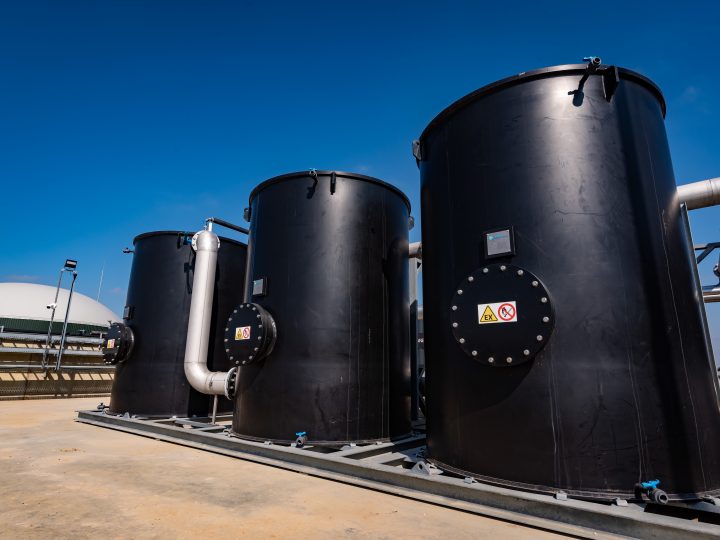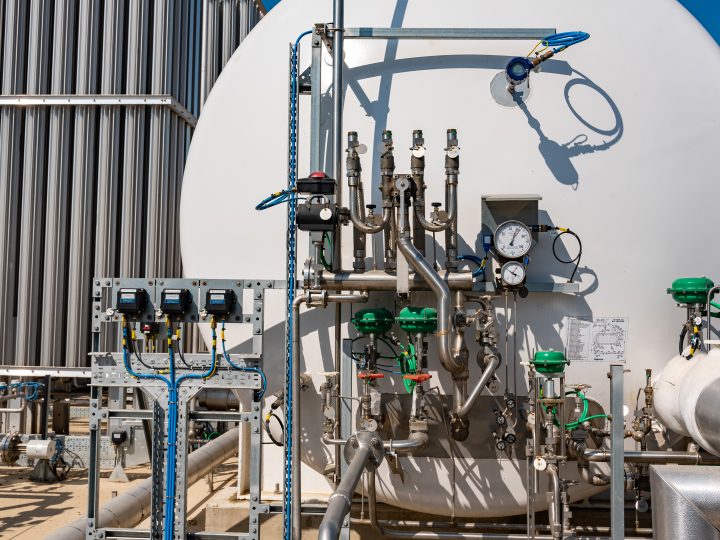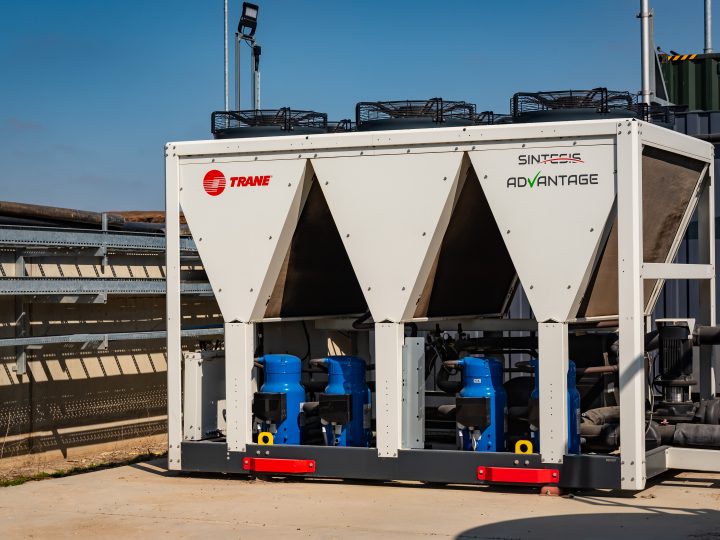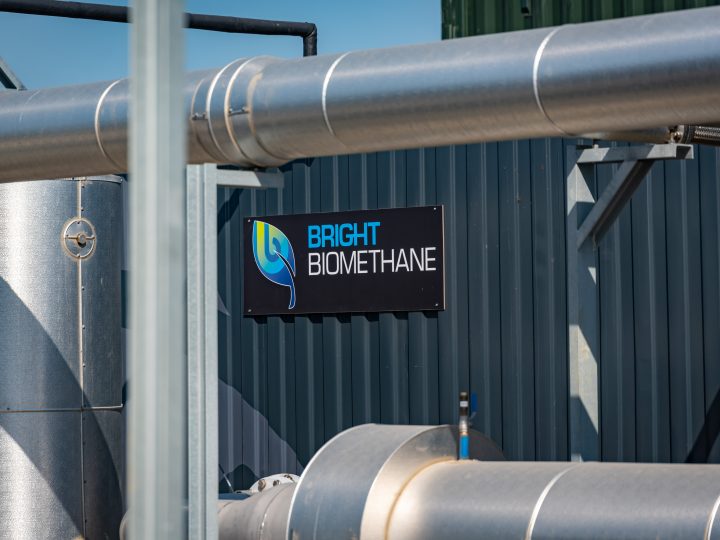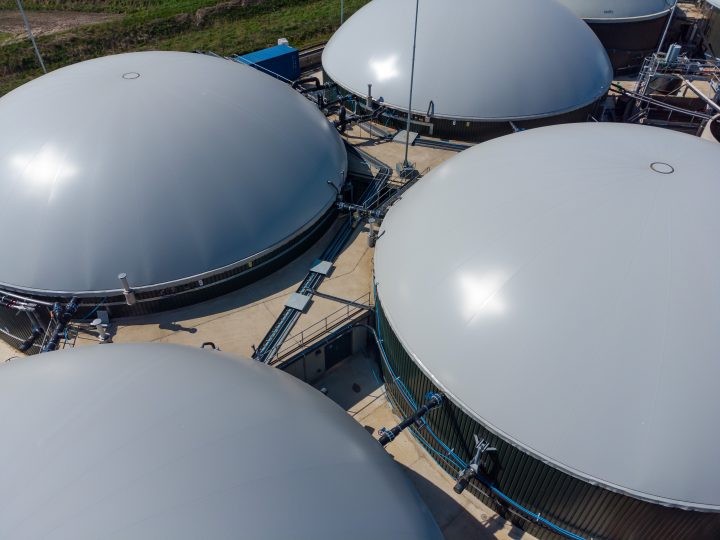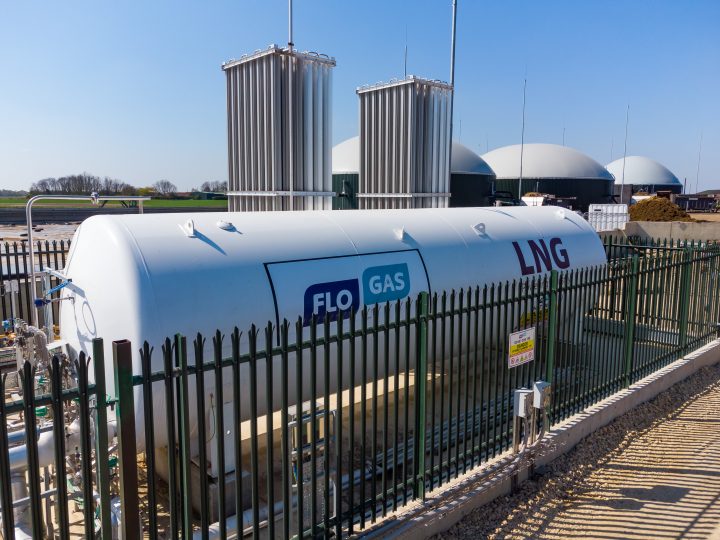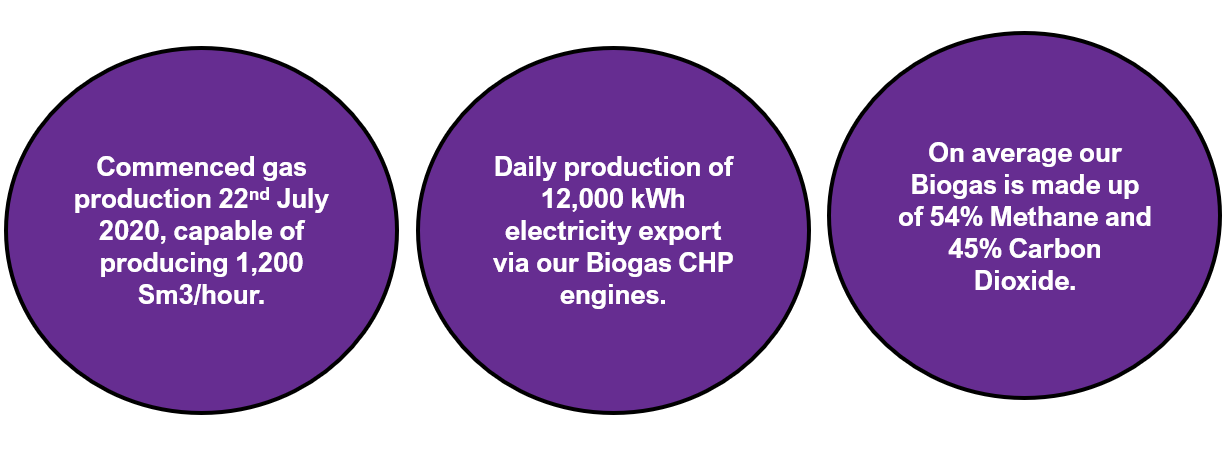
Our on-farm anaerobic digestion plant established in 2013 is at the forefront of innovative technology. We are continually improving our methods whilst expanding our process, to generate clean and efficient power. Most importantly, we are reducing greenhouse gases, as part of our wider sustainable carbon managed approach to anaerobic digestion.
The AD plant is located 18 miles away from Peterborough and provides an ideal location for building relationships with the local farming community. The site which originally generated electricity via two on site combined heat and power units, has recently undergone a massive transformation. Currently it is the first anaerobic digestion site in the UK, which injects gas directly into the National Grid high pressure transmission line, an extremely prominent achievement for all involved.
The site comprises of five primary digesters and one after digester. The site has a maximum upgrader capacity for 2,000 cubic metre per hour injected directly into the grid. It is fed on a majority of cattle muck and residual farm feed, alongside a small amount of energy crops. In total the site feeds approximately 115,000 tonnes per year, whilst producing a digestate by-product.
Alongside our current anaerobic digestion site, we have an exciting proposal in place for implementation of an injection pipeline, this pipeline has capabilities of injecting 9,000 standard cubic metre per hour. The project allows Murrow anaerobic digestion site to take in additional biomethane from other anaerobic digestion sites. These are sites which have reached their maximum grid injection capacity. By offering this service, we are hoping to help sites across the UK achieve their maximum green energy production potential.
Our on-site engineers are highly experienced within the anaerobic digestion industry and are responsible for undertaking the following activities within our plant…..
- Equipment day to day maintenance, in line with manufacturers recommendations.
- Preventative maintenance to reduce downtime occurrences.
- Troubleshooting issues to alleviate decreased efficiency in the most economical way possible.
- Participation in planned projects to improve performance, site activities and biomethane production.
- Operational guidance and assistance relating to plant biology, feedstock plans and process optimisation. Achieving understanding of plant health and stability, to ensure biogas yield is maximised.
- Informed analysis through regular monitoring and data collection.
